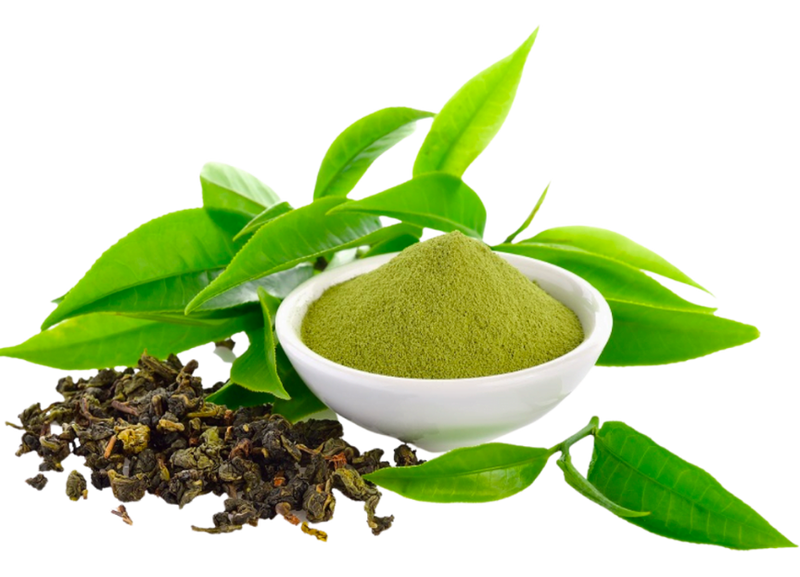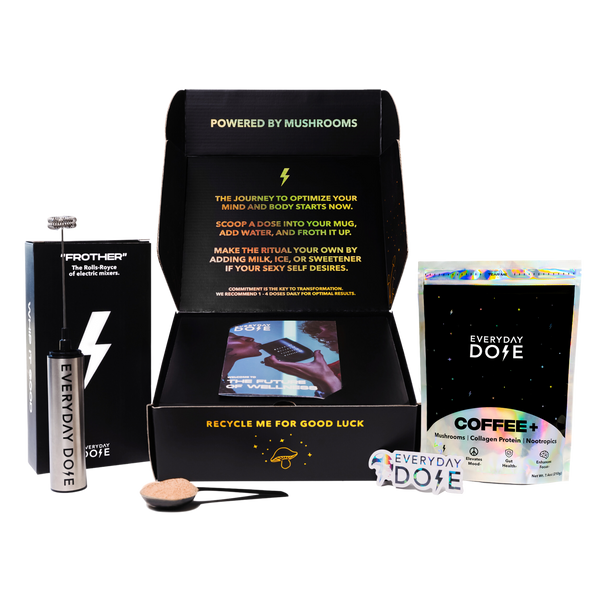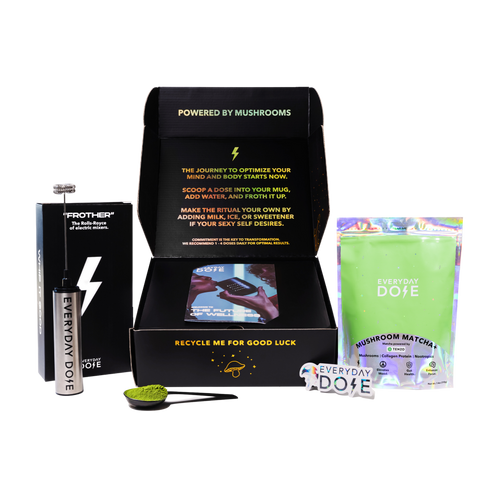

Exploring The Relationship Between L‑Theanine and ADHD

In the dynamic landscape of ADHD management, individuals are continually seeking natural avenues to enhance focus and cognitive balance. L‑Theanine, an amino acid found abundantly in green tea leaves, is emerging as a noteworthy player. Is L‑Theanine merely a passing fad, or a genuine contender in the quest for cognitive balance?
In this article, we do a deep dive into the world of L‑Theanine, unraveling its scientific tapestry, exploring its potential benefits for ADHD management, and outlining considerations for safe and effective utilization. Prepare to delve into the wisdom of L‑theanine that may hold the key to unlocking a new dimension of focus, serenity, and cognitive balance for those navigating the dynamic landscape of ADHD.
As we embark on this journey, keep in mind:
- This article does not intend to replace professional medical advice or endorse L‑Theanine as a definitive treatment for ADHD.
- Individual responses to L‑Theanine can vary and consulting a healthcare professional is crucial before incorporating any new supplement into your routine.

L‑Theanine is primarily used to induce relaxation, with reported benefits including:
- reduced anxiety
- better sleep
- improved focus
- cognitive clarity
Beyond these core benefits, L‑Theanine offers potential well-being advantages of improved mood, enhanced stress resilience, and even neuroprotective properties.
L‑Theanine is a non-protein amino acid that is found naturally in green tea. Some research suggests it may help certain aspects of ADHD. Composed of seven carbon atoms, fourteen hydrogen atoms, two nitrogen atoms, and three oxygen atoms, its chemical formula (C7H14N2O3) belies the intricate symphony it conducts within the brain. Key molecular components within L‑Theanine include:
- Glutamine backbone: This provides the basic structural framework of the amino acid, offering stability and anchoring points for other molecular interactions.
- Ethyl group: This unique addition distinguishes L‑theanine from its close cousin, the excitatory neurotransmitter glutamate. The ethyl group plays a crucial role in L‑Theanine's calming effects.
- Amide linkage: This joins the glutamine backbone with the ethyl group, creating a crucial functional group that interacts with key brain receptors.
L‑Theanine's calming effect originates from its unique ability to interact with various brain chemicals and receptors. Some of its key mechanisms of action include:
- Inhibiting glutamate: L‑Theanine binds to brain receptors for glutamate, an excitatory neurotransmitter responsible for heightened alertness and anxiety. This reduces glutamate's activity, promoting a sense of calm and relaxation.
- Boosting GABA: L‑Theanine stimulates the production of GABA, another neurotransmitter with inhibitory properties. GABA helps quiet down neuronal activity, further contributing to relaxation and stress reduction.
- Modulating dopamine and serotonin: L‑Theanine interacts with the brain's reward and mood-regulating systems, potentially influencing the levels of dopamine and serotonin, neurotransmitters associated with pleasure, focus, and well-being.
L‑Theanine has long been associated with claims of improved focus and relaxation. While traditional medications remain the mainstay of ADHD treatment, several studies show promise for L‑Theanine as a complementary approach. Here's a breakdown of the evidence:
- Enhanced Focus and Cognition: A 2019 study found that combining L‑Theanine and caffeine yielded significant improvements in sustained attention and overall cognitive performance among adults, suggesting potential benefits for individuals with ADHD (Kahathuduwa et al., 2019)
- Improved Attention in Children: Another study, focusing on boys with ADHD aged 8-15, observed improvements in attention after administering L‑Theanine alone or in combination with caffeine. Notably, the L‑Theanine and caffeine combination led to the most substantial gains in focus compared to a placebo (Kahathuduwa et al., 2020)
- Sleep Disturbance Relief: A systematic review published in the Journal of Child and Adolescent Psychopharmacology highlights the potential of L‑Theanine in improving sleep efficiency for individuals with ADHD, highlighting its possible use as a sleep-support tool alongside existing treatment plans (Barrett et al., 2013)
It's important to note that these studies involve small groups, and further research is needed to confirm the long-term efficacy and safety of L‑Theanine for ADHD management. Additionally, individual responses may vary.

Derived from tea leaves, L‑Theanine is emerging as a promising ally in cultivating a serene mental state without the drawbacks of inducing lethargy. Within the realm of ADHD management, the potential of L‑Theanine to simultaneously foster relaxation and concentration presents a captivating prospect. Its unique ability to influence neurotransmitters in the brain sparks interest, as L‑Theanine is believed to contribute to the establishment of an equilibrium that aids in mitigating the challenges of impulsivity and hyperactivity. This delicate balance, in turn, is seen as a key factor in the journey toward improved focus and cognitive control for individuals navigating the complexities of ADHD.
The intrigue surrounding L‑Theanine lies not just in its origin from tea leaves but in its potential to act as a cognitive stabilizer. As individuals with ADHD grapple with the nuances of their condition, L‑Theanine's role in influencing neurotransmitters becomes even more significant. The prospect of improved focus becomes a beacon of hope, suggesting that within the calming properties of L‑Theanine, individuals can find a pathway towards a more centered and controlled cognitive experience.
A key aspect of L‑Theanine's appeal lies in its impact on dopamine and serotonin production. By promoting the synthesis of these neurotransmitters, L‑Theanine sets the stage for a more balanced cognitive environment. The intricate dance between dopamine and serotonin plays a pivotal role in mood regulation and attention, making L‑Theanine a noteworthy contender in the pursuit of enhanced cognitive well-being.
L‑Theanine has been noted as a non-pharmacological alternative for those seeking complementary approaches to traditional ADHD management strategies. The emphasis on this amino acid as a natural avenue for support showcases the growing interest in holistic solutions. L‑Theanine's role in influencing neurotransmitters opens up possibilities for individuals navigating the challenges of ADHD, suggesting that a more nuanced and integrative approach to cognitive harmony may be on the horizon.
L‑Theanine is generally considered safe for most people to take daily however; individual responses can vary, so it's recommended to start with a lower dose and gradually increase as needed. Some potential side effects of taking L‑Theanine, especially at higher doses, include headache, stomach upset, drowsiness, and anxiety. If you experience any of these side effects, it's best to reduce your dosage or stop taking it altogether. If you have any concerns, be sure to talk to your doctor.
Can You Take L‑Theanine With ADHD Medication?
Most studies haven't explored L‑Theanine alone for ADHD management. Instead, they've looked at its effects combined with existing medication. This highlights its potential as a complementary, not a replacement, therapy. So, if you're on medication, discuss trying L‑Theanine with your doctor. However, substituting medication with L‑Theanine isn't recommended based on current research.

As we navigate the multifaceted landscape of ADHD support, Everyday Dose mushroom coffee is designed to complement your well-being journey. A harmonious blend of L‑Theanine, functional mushrooms, collagen protein, and coffee extract, Everyday Dose’ seamlessly integrates the energizing properties of carefully selected coffee extract and the calming influence of L‑Theanine. With each sip of this unique combination, you're not just indulging in a flavorful cup; you're embracing a holistic approach to support your brain chemistry. Welcome to Everyday Dose, where nature and science converge to create a symphony of support for your cognitive well-being. As always, consult your doctor before making any significant changes to your diet or lifestyle, especially if you have existing health conditions.
Source List:
Scientific References:
- Kahathuduwa CN, Wakefield S, West BD, et al. (2020). Effects of L‑theanine-caffeine combination on sustained attention and inhibitory control among children with ADHD: a proof-of-concept neuroimaging RCT. Sci Rep. 10(1):13072. doi:10.1038/s41598-020-70037-7
- Kahathuduwa C, Wakefield S, West B, Blume J, Mastergeorge A. (2019). L‑theanine and caffeine improve sustained attention, impulsivity and cognition in children with attention deficit hyperactivity disorders by decreasing mind wandering (OR29-04-19). Curr Dev Nutr. 3(Suppl 1):nzz031.OR29-04-19.doi:10.1093/cdn/nzz031.OR29-04-19
- Barrett JR, Tracy DK, Giaroli G. (2013). To sleep or not to sleep: a systematic review of the literature of pharmacological treatments of insomnia in children and adolescents with attention-deficit/hyperactivity disorder. J Child Adolesc Psychopharmacol. 23(10):640-647. doi:10.1089/cap.2013.0059
Online Articles:
https://www.donefirst.com/blog/can-l-theanine-help-manage-adhd-symptoms








